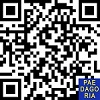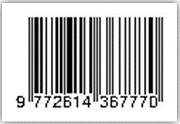THE EFFECT OF TEAM ACCELERATED INSTRUCTION MODEL ON STUDENTS' TEXT ANALYSIS ABILITY IN GRADE VII
Abstract
Keywords
Full Text:
PDFReferences
A, A., & AN, D. N. (2023). Efforts to Improve Students’ Analytical Skills on the Topic of Social Inequality Through the Problem-Based Learning Model in Class XII IPS 2 of SMA Pertiwi 1 Padang. Naradidik: Journal of Education&Pedagogy, 2(2), 122–129. https://doi.org/https://doi.org/10.24036/nara.v2i2.65
Amani, C. S. D. (2023). The Concept of Critical Thinking from the Perspective of QS. Al-Alaq Verses 1–5. Gunung Djati Conference Series, 19(1), 190–198. https://conferences.uinsgd.ac.id/gdcs
Anshori, M., & Iswati, S. (2019). Quantitative Research Methodology. Airlangga University Press.
Arfiyani, S. M., Kusumawati, T. I., & Yumni, A. (2024). The Influence of Picture Series Media on the Expository Text Writing Skills of Fifth Grade Students at SD IT Al-Fatih Bandar Setia. Pedagogik: Jurnal Pendidikan Dan Riset, 2(3), 338–348. https://ejournal.edutechjaya.com/index.php/pedagogik/article/view/949/746
Budiman, Tanjung, A. A., Simamora, A., & Anriani, M. (2023). Analysis of Ineffective Sentences in News Articles. Education Journal: Journal Education Researh Development, 7(2), 182–191. https://doi.org/https://doi.org/ 10.31537/ej.v7i2.1231
Devianty, R. (2021). Misconceptions in Indonesian: A Morphophonemic Review. Jurnal EUNOIA: Jurnal Pendidikan Bahasa Indonesia, 1(1), 85–100. https://doi.org/http://dx.doi.org/10.30821/eunoia.v1i1.1005
Faridah. (2022). Examining the Novel Janji by Tere Liye: An Anomalous Da’wah in the Development of Islamic Society. Jurnal Pemberdayaan Masyarakat, 10(2), 72–81. https://doi.org/http://dx.doi.org/10.37064/jpm.v10i1.11468
Hamdi, A. S., & Bahruddin, E. (2014). Quantitative Research Method: Application in Education. Deepublish.
Islahudin, Utami, L. S., & Ahmad. (2018). Improving Physics Learning Outcomes Through Cooperative Learning Based on Laboratory Activities. Paedagoria : Jurnal Kajian, Penelitian Dan Pengembangan Kependidikan, 9(2), 86–90. https://doi.org/https://doi.org/10.31764/paedagoria.v9i2.841
Kartikasari, D. (2022). Analytical Thinking through Self-Questioning. Pusat Pengembangan Pendidikan dan Penelitian Indonesia.
Kusumastuti, A., Khoiron, A. M., & Achmadi, T. A. (2020). Quantitative Research Method. Deepublish.
Mahsup, Fitriani, E., & Ibrahim. (2023). Development of an E-Module Based on the Discovery Method to Improve Students’ Learning Understanding. Paedagoria : Jurnal Kajian, Penelitian Dan Pengembangan Kependidikan, 14(4), 515–520. https://doi.org/https://doi.org/10.31764/paedagoria.v14i4.19391
Mahsup, Muhardini, S., Sahara, A., & Solehah, A. (2024). Development of Problem Based Investigation Model Learning Tools Based on Local Wisdom to Improve Students’ Critical Thinking Skills. Paedagoria : Jurnal Kajian, Penelitian Dan Pengembangan Kependidikan, 15(3), 390–396. https://doi.org/https://doi.org/10.31764/paedagoria.v15i3.22783
Mislinawati, & Nurmasyitah. (2018). Challenges Faced by Teachers in Implementing Learning Models Based on the 2013 Curriculum at SD Negeri 62 Banda Aceh. Jurnal Pesona Dasar, 6(2), 22–32. https://doi.org/https://doi.org/10.24815/pear.v6i2.12194
Nurpesti. (2021). Improving Students’ Mathematics Learning Outcomes by Using the Team Accelerated Instruction (TAI) Learning Model. JURNAL MathEdu (Mathematic Education Journal), 4(2), 321–329. https://doi.org/https://doi.org/10.37081/mathedu.v4i2.2832
Nuryaningsih, W. D. (2021). Mind Map for Understanding News Texts. Penerbit NEM.
Pebriani, D., & Oktarina, N. (2018). The Influence of Discipline, Facilities, and Learning Motivation on Manual Typing Speed. Economic Education Analysis Journal, 2(1), 18–23. http://journal.unnes.ac.id/sju/index.php/eeaj
Rachman, D., SoviyahSoviyah, Fajaruddin, S., & Pratama, R. A. (2020). Reading Engagement, Achievement and Learning Experiences Through Kahoot. LingTera, 7(2), 168–174. https://doi.org/https://doi.org/10.21831/lt.v7i2.38457
Rahmatiah. (2021). The Implementation of the Team Accelerated Instruction Model to Improve Reading Skills Using Microsoft Office PowerPoint Media in Elementary Schools. ALGAZALI: International Journal of Educational Research, 3(2), 163–175. https://journal-uim-makassar.ac.id/index.php/AIJER/article/view/485/419
S., M. B. G., Japa, I. G. N., & Jayanta, I. N. L. (2022). The Team Accelerated Instruction Model Improves Mathematics Learning Outcomes. Mimbar PGSD Undiksha, 10(2), 402–407. https://doi.org/https://doi.org/10.23887/jjpgsd.v10i2.48252
Sipahutar, A. P. A., Khairuna, & Rambe, R. N. (2024). The Effect of Class Discussion Learning Based on HOTS on the Critical Thinking Ability of 11th Grade High School Students in the Excretory System Material. JagoMIPA: Jurnal Pendidikan Matematika Dan IPA, 4(2), 280–286. https://doi.org/https://doi.org/10.53299/jagomipa.v4i2.584
Sitompul, D. N., & Cahya, E. D. (2022). The Effect of Accounting Learning Using the Team Accelerated Instruction (TAI) Learning Model on the Learning Outcomes of 11th Grade Accounting Students at SMK Swasta Al-Washliyah 3 Medan for the 2022/2023 Academic Year. Liabilities: Jurnal Pendidikan Akuntansi, 5(3), 23–29. https://doi.org/https://doi.org/10.30596/liabilities.v5i3.12700
SK BESKAP NO 032/H/KR/2024, Kemendikbudristek (2024).
Subarna, R., Dewayani, S., & Setyowati, C. E. (2021). Indonesian Language for 7th Grade Junior High School. Pusat Kurikulum dan Perbukuan Badan Penelitian dan Pengembangan dan Perbukuan Kemendikbud.
Sukarelawan, M. I., Indratno, T. K., & Ayu, S. M. (2024). N-Gain vs Stacking: Analyzing Changes in Student Ability in a One-Group Pretest-Posttest Design. Suryacahya.
Tunisa, J. (2022). Implementation of the Team Accelerated Instruction Cooperative Learning Model to Improve High School Students’ Accounting Learning Outcomes. Jurnal Pendidikan Ekonomi Undiksha, 14(2), 321–329. https://doi.org/https://doi.org/10.23887/jjpe.v14i2.52234
Yusuf, M. (2017). Research Methods: Quantitative, Qualitative, and Mixed Methods. Kencana.
Zarzua, N. J. R. (2024). Advancing the Combinatorial Thinking of Grade 10 Students through Structure of Observed Learning Outcomes inTeam Accelerated Instruction. TWIST, 9(3), 698–704. https://doi.org/10.5281/zenodo.10049652#278
DOI: https://doi.org/10.31764/paedagoria.v16i3.31532
Refbacks
- There are currently no refbacks.
Copyright (c) 2025 Liza Handayani Batu Bara, Liza Handayani Batu Bara, Rina Devianty

This work is licensed under a Creative Commons Attribution-ShareAlike 4.0 International License.
Paedagoria : Jurnal Kajian, Penelitian dan Pengembangan Kependidikan
Fakultas Keguruan & Ilmu Pendidikan | Universitas Muhammadiyah Mataram.
_______________________________________________
 | Paedagoria : Jurnal Kajian, Penelitian dan Pengembangan Kependidikan |
______________________________________________
CURRENT INDEXING:
EDITORIAL OFFICE:


















